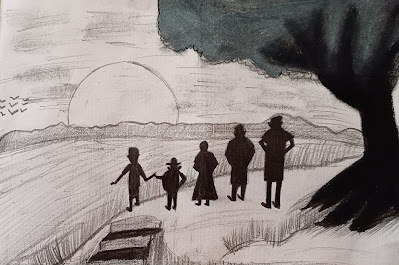Need for Educational Counselling
Need for Counselling in Education
Education is the procedure of imparting knowledge, positive attitude and appropriate life skills to a learner through various patterns of learning mechanism. Whether a slow or fast learner, every student tries his best to excel in academics. However, during the process of education, a student or a learner may face various problems/situations that can possibly interfere in the smoother progress through their academics in school or college. Many a times, the student may not recognize the exact cause behind their problems. These obstructions in education can be due to multiple causes such as :-
- learning disabilities (dyslexia, dyspraxia etc.)
- anxiety about exam failure
- sleep disorders
- emotional stress
- over expectations in academics from parents/family
- pressure due to severe academic competitions
- personal or family issues
- personality disorders
- physical health problems
- mental health problems ( including anxiety, depression etc.)
- abusive nature of elders including teachers/parents (physical, verbal, sexual abuse)
- forceful choice of uninterested course of study
- childhood trauma
- unexpected loss/separation from dear ones (death, official transfer, etc.)
- unfriendly teachers
- sudden change of school/college environment (place of study)
- drug abuse (drugs, smoking etc.)
- game addictions (video games, gambling etc.)
- gender identity issues
- sexual orientation problems etc.
It is to be understood by the parents and teachers that there is a reason behind the poor performance of every struggling learner. A timely or early intervention can help the student and his/her family in identifying the root cause behind the student's poor academic performance and aid them in improving their progress as well as confidence. It is at this stage, that Educational Counselling plays the significant role.
Method of Educational Counselling
The class teacher or staff advisor primarily takes up the role of a guide or mentor and can identify those students who is in need of counselling. A professional, trained in counselling takes up the role of the Educational Counsellor. In educational institutions, it is a must to have an educational counsellor for timely guidance and identification of student's problems as well as suggesting solutions.
Educational Counselling is a method of interviewing carried out between the Counsellor and the Client (student). It consists of
- Interviewing
- Discussing the Problem
- Suggesting Solutions &
- Follow up
In the interview, the Counsellor establishes a rapport with the client and uses talk therapy, various discussion techniques, questionnaire method, observation tools and topics of interest in order to help the client identify the real reason that is interfering with his/her studies.
The Counsellor also checks for the intelligence quotient (IQ) as well as emotional quotient (EQ) of the learner in the beginning periods of discussions. This ensures that the student is capable of carrying his learning further forward with the help of solutions suggested by the counsellor. If needed, the Counsellor will involve family members in separate or group counselling sessions.
It can take multiple sessions to have a clear cut idea about the cause/causes of the Client's learning problems. During all these sittings, the Counsellor maintains empathy, confidentiality as well as non-judgmental attitude as part of his/her professional ethics and expertise.
As the counselling progresses, the Counsellor identifies if the problem of the student is emotional, psychological or due to stress, tension, environmental change, anxiety, separation from dear ones, adjustment issues, personality issues etc. Some causes as depicted above may require medical intervention by a consulting Doctor (such as vision problems, neurological problems, mental health issues, dyslexia, ADHD, autism, drug addiction etc.). In such scenario, the Counsellor will redirect the Client and his parents to the respective specialist for further examinations and medical support.
If the intensity of the problem is solvable by proper counselling, solutions will be provided by the Counsellor that will be real world solutions which can be easily understood, adopted, absorbed as well as practiced by the student. The solutions suggested will require family support for its successful implementation especially if the student is from school. The Educational Counsellor will suggest practical ways of implementing the solution as per the problems faced by the student.
 |
| Counselling session outdoors |
Follow up sessions will also be recommended by the Counsellor for validating the progress in performance by the Client. The Counsellor also evaluates the implementational methods adopted by the student and its positive outcome. If any changes in implementation is required, new methods will be suggested. Follow up continues until positive progress is seen in the student and the student is able to overcome his/her issues and develops confidence in facing them further.
Bottom line
It is the responsibility of every parent and every teacher to provide conducive, empathetic, healthy, loving, caring, understanding and encouraging learning environment to every learner in the society. Children with average intelligence and average emotional quotient are adaptive learners. Some are slow and some are fast learners as well. But life situations, trauma, family issues etc. can severely affect the healthy learning capacity of a student irrespective of his/her age.
If any such learning blockage is exhibited by your student/ward, the teacher/parent should help and assist in its proper solution by recommending the aid of a Counsellor. Early or timely intervention can alleviate the stress and pressure in a student and help him progress in his academics as well as succeed in his career. Resilience is the key to success and educational counselling can help in being resilient with healthy learning styles and self-confidence.
Happy Learning ! 😊
Dr. Sheena Latif









Comments